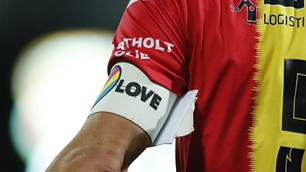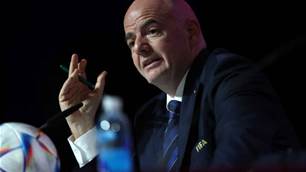Top players should not be obliged to provide information on their whereabouts to drug testers for 365 days a year, FIFA's medical chief today insisted.
In Britain, UK Anti-Doping (UKAD) are pushing for a pool of 30 elite players who would have to provide details of their whereabouts for one hour every day of the year, including when they are on holiday.
That would bring football closer into line with sports such as athletics, who are obliged to provide such detailed information, but talks between UKAD and the Football Association have stalled.
Professor Jiri Dvorak, FIFA's chief medical officer, said such a system was not necessary and that the system of limiting the pool to players injured or suspended for long periods worked well alongside UEFA's testing of entire teams of the clubs involved the Champions League.
Dvorak, speaking after addressing the Sport, Exercise and Medicine conference in London today, told Press Association Sport: "There is a difference between individual and team sports' athletes. In team sports they are there 49 weeks a year and maybe have three weeks off with their families.
"It's very different from individual athletes who are training for maybe five events a year.
"We already have UEFA testing the top teams who are those in the Champions League and FIFA will now do the same with the teams in the Club World Cup.
"We are absolutely compliant with the World Anti-Doping Code and the statistical data speaks for itself."
During the conference, Dvorak warned about the dangers of sportspeople consuming banned substances through contaminated food, or alternative medicine.
More than 107 players at the FIFA Under-17 World Cup in Mexico this summer showed traces of the banned drug clenbuterol in their urine samples after eating contaminated meat.
Meanwhile, North Korean officials blamed traditional medicine using musk deer glands for five of their players testing positive for steroids at the Women's World Cup.
Dvorak said analysis of the musk deer secretions showed they contained 16 different anabolic steroids.
Related Articles

Morocco blazing a trail for Arab women's football participation

FIFA blasted for OneLove armband threat













